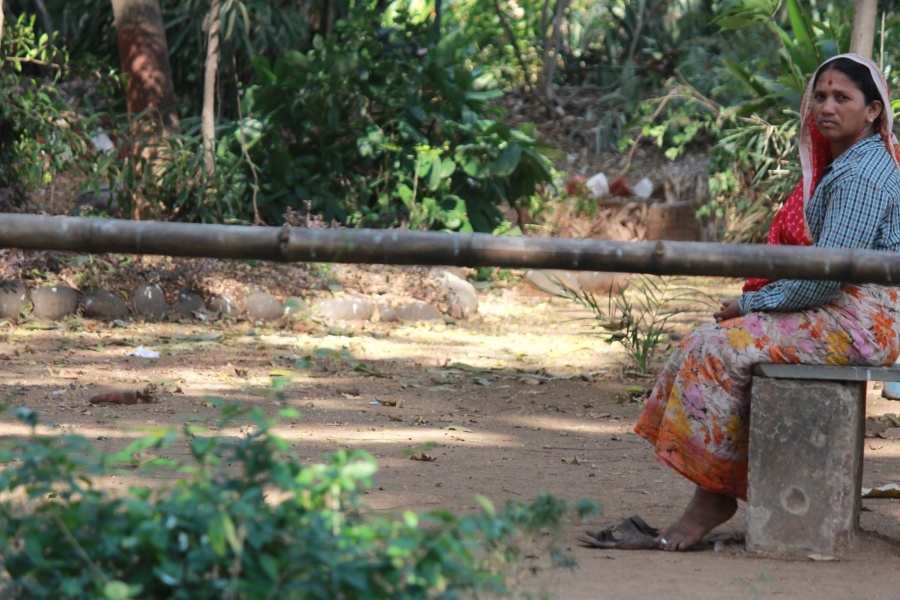Dr Grace Wang and Dr Bankole Falade explore China’s unique role in shaping Africa’s energy landscape, and emphasize the need for a nuanced understanding derived from local perspectives as reflected in African newspaper discourse.
African Access to Power
In February 2023, South Africa, one of the largest economies on the African continent, declared a state of disaster over the nation’s power blackouts. Despite the world coverage and discussions on how “Eskom’s corruption and crime turned the lights off in South Africa,” the need for electricity and renewable and sustainable energy could not be more urgent.
According to the United Nations Sustainable Development Goal 7: Affordable and Clean Energy, countries should “ensure universal access to affordable, reliable and modern energy services” and “expand infrastructure and upgrade technology for supplying modern and sustainable energy services for all in developing countries” by 2030. As of 2021, 675 million people still live with no electric power worldwide, and 4 in 5 are in Sub-Saharan Africa.
An urgent transformation of the electricity system is not only central to Africa’s clean energy transition but also critical to social and economic development on the continent. Global business entities and educational institutions that are in communications and businesses with African countries might be affected if Africans are not granted access to electricity and then Internet connectivity. Moreover, without electricity, local clinics cannot store vaccines, affecting human health and the environment which will lead to slower progress of Goal 5, gender equality.
Africa Energy Future – More than Financing
In our closely connected world where we share a common future, international public financing for clean and renewable energy for developing countries, though, has been declining from $26.4 billion in 2017 to $10.8 billion in 2021 (see Figure 1). In terms of Africa, according to the International Energy Agency, global investments in green and renewable energy in Africa have seen less than 2%, though at least $2 trillion in investment by 2050 is needed in the power sector alone in Africa.
During the 28th Conference of the Parties to the United Nations Framework Convention on Climate Change (COP28) IN 2023, Executive Vice President of the European Commission, Maroš Šefčovič, said:
The Africa-EU Green Energy Initiative will ensure increased access to affordable, reliable and sustainable energy for people and businesses in Africa; promote the increase of generation of renewable energy; and increase energy efficiency. With more than 20 billion euros until 2027 pledged by Team Europe partners, including 3.4 billion euros in grants from the EU, we are demonstrating our commitment to the target of tripling renewable energy and doubling energy efficiency which we hope to also be included in the multilaterally agreed outcomes of COP28.
Differing from EU’s Global Europe, the major financial vessel for EU international cooperation from 2021 to 2027, China has started talent training and exchange in the technology and energy field under the One Belt One Road Initiative and South-South Cooperation framework, aiming to increase China’s participation and contribution in international standards and regulations in the renewable energy field. What distinguishes China from other global powers’ participation in Africa’s energy field is China’s relatively recent success in eliminating poverty along with its experience in electric power infrastructure construction. Some notable Chinese power projects in Africa include the wind power project near De Aar in the Northern Cape Province of South Africa which enjoys sufficient natural wind sources. Longyuan SA, a subsidiary of China Energy Investment Group’s (CHN Energy) China Longyuan Power Group Corporation Ltd. (Longyuan Power) completed this project in 2017 with an investment of roughly 2.5 billion RMB. This kind of China energy project and energy cooperation in Africa is not covered widely on the mainstream international media channels. Africa’s urgent energy discourse can no longer be shaped and understood merely from a Western perspective. In our longitudinal research, we aim to analyze energy issues from Africa’s perspective to comprehensively understand this global discourse through media analysis of five African news publications.
Energy Reports from Local African Newspaper
To effectively understand what has been reported on energy issues in African newspapers, 501 articles which contained reference to China were selected from a corpus of articles on energy and innovation published by newspapers in Ghana, Kenya, Nigeria, Tanzania and South Africa between 2006 to 2021. Nigeria and Ghana are in West Africa, Kenya and Tanzania in East Africa and South Africa in the Southern Africa region. They are also among the top 12 economies in Africa. The phrase cluster below (see Figure 2), the output of a text mining software, shows that at the core of the discourse involving China in the context of energy and innovation in the African media is how it can drive economic growth and development. Renewable energy, job creation, sustainable development and climate change were recurring phrases in media articles.
Figure 2:

The topic modelling below (see Figure 3), also from WordStat, uncovers the latent thematic structure of the corpus by applying a combination of natural language processing and non-negative matrix factorization. All 501 articles have a financial element and are grouped under the theme Market and Bank which includes keywords such as economy, finance, banking, insurance, growth, GDP, investments, debts, infrastructure, markets and goods. A surprise theme was the education work category featuring education, work, training, women, communities’ development, universities, technology, and agriculture. Widely held debates about China in Africa are often focused on infrastructure and countries’ inability to repay loans. Our media discourse analysis shows that China’s engagement in Africa’s energy sector involves education and training which is a discourse that is often missing in the mainstream international media outlets.
Figure 3:

A Close Look at the Key Themes
- Education/Work
The Ghana News Agency in October 2014 reported that Chinese Ambassador Sun Baohoug said China would continue to help train professionals to deal with the issues of climate, environmental pollution and land degradation. The agency also reported in December 2014, the award of scholarships for 21 Ghanaian students to study in China.
The Citizen, Tanzania in July 2015 reported the signing of a Memorandum of Understanding between Uganda and China’s National Research Institute for Rural Electrification/Hangzhou Regional Centre, to offer training, internship and research opportunities for young engineers in the sector and students on engineering and vocational training programmes in various institutions.
This Day Nigeria December 2020 reported that the Nigerian government has begun the training of about 500 individuals as part of the $5.8 billion Mambilla Hydroelectric Power Project for which China’s Export-Import Bank will provide 85 per cent of the resources.
- Emissions/Carbon
An article in Business Day South Africa (24/04/2008) raised an alarm that South Africa has created an economy that is hugely energy-intensive with most coming from “dirty” power sources, making it the 14th highest carbon dioxide emissions per capita and the seventh most carbon-intensive economy in the world. It called for diversifying the energy supply away from fossil fuels towards clean sources of energy and diversifying the economy away from energy-intensive industries to high-value and labour-intensive industries driven by innovation rather than excessive electricity. The country, it observed, (8/8/2010) is lagging behind Brazil, China and India when it comes to investing in clean energy.
In Nigeria, an article in This Day Nigeria October 2020 noted that the private sector has a key role in developing a low-carbon economy as it will contribute more than about 80 per cent of climate financing required annually. China is investing heavily in bamboo plantations creating employment and generating $10 billion and called for a return to a pathway that will deliver a low carbon economy without negatively impacting GDP.
Business and Financial Times Ghana noted that 2020 marked 10 years of power generation by Sunon Asogli Power, owned by Shenzhen Energy Group of China with support from China Africa Development Fund (CADFUND), which has become the largest independent power producer in the country. It also served as the number one training ground for young engineers and is embracing new energy technologies in solar, wind, geothermal, biomass/bioenergy, etc.
- Markets/Banks
An article in This Day Nigeria December 2016 noted that China offered assistance to over 120 developing countries to help them achieve the Millenium Development Goals and since January 1, 2015, has officially granted zero-tariff treatment to 97 per cent of the taxable items from least developed countries. China has also unconditionally cancelled the due loans for heavily indebted poor countries and least developed countries. Another article noted that Chinese lending tends to have a much longer duration up to 20 years and a grace period of around five years before any interest payments are due thus making it cheaper than commercial and other sources.
Daily News Tanzania of December 2021 said China is the largest investor in the industrial sector and Chinese companies are undertaking several development projects including Standard Gauge Railway and the Julius Nyerere Hydropower Power Project. The report said President Xi also announced additional projects to be jointly implemented with Africa to cover healthcare, poverty reduction and agricultural development, trade and investment promotion, digital innovation, and green development.
Conclusion
China’s engagement with Africa is mixed with criticism and competition. The media discourse analysis underscores the importance of considering Africa’s perspective in shaping the narrative surrounding China’s involvement in the continent’s energy sector. Contrary to the limited coverage in mainstream international media, African newspapers provide a more nuanced understanding of China’s contributions, emphasizing the need for a holistic view in the global discourse on Africa’s energy future.
The views expressed in this post are those of the author and in no way reflect those of the International Development LSE blog or the London School of Economics and Political Science.
Featured image: ispionline.it







1 Comments